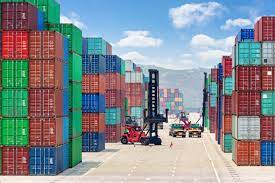Saudi import regulations are crucial for businesses looking to trade in the Saudi market. Navigating through the complexities of these regulations is vital for successful importing operations. This comprehensive guide aims to help businesses understand Saudi import regulations in order to facilitate the process and ensure compliance. From documentation requirements to prohibited items, this guide provides valuable insights to maximize efficiency and pre shipment inspection Jeddah minimize potential risks when importing goods into Saudi Arabia.
Understanding Saudi Import Regulations: A Comprehensive Guide for Businesses is a detailed resource that outlines the various import regulations and procedures in Saudi Arabia. The guide covers important topics such as import pre shipment inspection Services documentation, requirements for specific products, customs clearance procedures, and import duties and taxes. It also provides insights into the culture and business environment in Saudi Arabia, helping businesses navigate the local market more effectively. This comprehensive guide is essential for any company looking to import goods into Saudi Arabia and is a valuable resource for understanding the complexities of the country’s import regulations.
Understanding Saudi Import Regulations: A Comprehensive Guide

“Understanding Saudi Import Regulations: A Comprehensive Guide” is a detailed resource that provides in-depth information about the regulations and requirements for importing goods into Saudi Arabia. The guide covers various aspects of the import process, including customs regulations, documentation requirements, import duties and taxes, and other important considerations for businesses looking to import goods into the country.
The guide also includes information about specific requirements for different types of goods, such as food products, pharmaceuticals, electronics, and machinery. It is designed to help importers navigate the complex regulatory landscape in Saudi Arabia and ensure compliance with all relevant laws and regulations.
Whether you are a best pre shipment inspection company in Saudi Arabia small business looking to start importing products into Saudi Arabia or an established company seeking to expand your international trade operations, “Understanding Saudi Import Regulations: A Comprehensive Guide” can be a valuable resource to help you understand and navigate the import process in Saudi Arabia.
Navigating the Complexities of Saudi Import Laws and Requirements
SABER Certification Now Available in Saudi Arabia

Navigating the complexities of Saudi import laws and requirements can be a challenging task for businesses looking to enter the Saudi market. The country has strict regulations in place that govern the import of goods, and it is important for companies to understand and comply with these regulations in order to avoid any potential issues or delays with their shipments.
Some of the key considerations that businesses need to keep in mind when importing goods into Saudi Arabia include obtaining the necessary import licenses and permits, adhering to product-specific regulations, and understanding the country’s customs procedures and documentation requirements.
Additionally, businesses must be aware of the various taxes and duties that apply to imported goods, as well as any restrictions or prohibitions on certain types of products. Working with a qualified customs broker or trade consultant can be helpful in navigating these complexities and ensuring compliance with Saudi import laws and requirements.
ٍSee Also: Get Your Home Sparkling with Professional Wohnungsreinigung Services
Key Considerations for Importing Goods into Saudi Arabia

When importing goods into Saudi Arabia, there are several key considerations to keep in mind. These include obtaining the necessary import licenses and permits from the Saudi Arabian authorities, complying with the country’s customs regulations and requirements, and ensuring that the imported goods meet the relevant health, safety, and quality standards.
It is also important to be aware of any restrictions or prohibitions on certain goods in Saudi Arabia, as well as any applicable tariffs or duties that may apply to imported items. Additionally, understanding the documentation and paperwork required for the importation process, such as commercial invoices, packing lists, and certificates of origin, is crucial for a smooth importation process.
Furthermore, it is advisable to work with a reliable freight forwarder or customs broker who has experience in importing goods into Saudi Arabia, as they can provide valuable assistance and guidance throughout the importation process. Overall, being well-informed and prepared for the requirements and regulations of importing goods into Saudi Arabia is essential for a successful and efficient importation process.
The Ins and Outs of Importing Products into Saudi Arabia
Importing products into Saudi Arabia requires compliance with the country’s regulations and customs procedures. The Saudi Food and Drug Authority (SFDA) regulates food and medical products, while the Saudi Standards, Metrology, and Quality Organization (SASO) oversees the quality and standards of imported goods. Additionally, importers must obtain the required import licenses and permits from the relevant authorities. It is essential to consider the cultural and religious sensitivities in Saudi Arabia when importing products, as certain items may be prohibited or subject to strict regulations. Working with a local agent or distributor can be beneficial for navigating the import process and understanding the market demands. Understanding the documentation, labeling requirements, and import duties is crucial for successful importing into Saudi Arabia.
ٍSee Also: كيفية الكشف السريع عن تسربات المياه في عنيزة
Demystifying the Process of Importing to Saudi Arabia: What You Need to Know
Demystifying the Process of Importing to Saudi Arabia: What You Need to Know is a guide that provides comprehensive information on the process of importing goods into Saudi Arabia. The guide covers important aspects such as customs regulations, documentation requirements, import tariffs and taxes, and import restrictions. It also outlines the steps involved in the import process and provides tips for navigating the complexities of importing into Saudi Arabia. Whether you are a new importer or looking to expand your business into the Saudi market, this guide will help you understand the essential information needed for successful importing.
ٍSee Also: تقنيات عزل أسطح المستشفيات في أبها: الأهمية والتحديات
A Guide to Complying with Saudi Arabia’s Import Regulations
A Guide to Complying with Saudi Arabia’s Import Regulations provides detailed information on the import requirements, restrictions, and regulations imposed by the Saudi government. The guide outlines the necessary steps and documentation for successfully importing goods into the country, including customs clearance, tariffs, and specific product standards. It also provides insights into potential challenges and strategies for navigating the import process in Saudi Arabia. This comprehensive resource is essential for businesses and individuals looking to enter the Saudi market and ensure compliance with the country’s import regulations.
Importing to Saudi Arabia: Essential Tips for a Smooth Process
When importing to Saudi Arabia, it is essential to familiarize yourself with the country’s import regulations and documentation requirements. This includes obtaining the necessary import licenses, ensuring compliance with customs duties and taxes, and understanding any restrictions on the importation of certain goods.
Additionally, it is important to work with a reputable freight forwarder or customs broker who has experience navigating the import process in Saudi Arabia. They can provide valuable assistance in handling the necessary paperwork, coordinating with local authorities, and ensuring that your goods are cleared for import in a timely manner.
It is also advisable to carefully consider the mode of transportation for your imports, taking into account factors such as cost, transit time, and the nature of the goods being imported. Whether you choose to ship via air, sea, or land, it is important to select a reliable and efficient transportation method that meets your specific import needs.
Lastly, it is important to be mindful of cultural and business etiquette when conducting import activities in Saudi Arabia. Building strong relationships with local partners and stakeholders can help facilitate a smooth import process and open doors for future business opportunities in the region.


0 تعليق